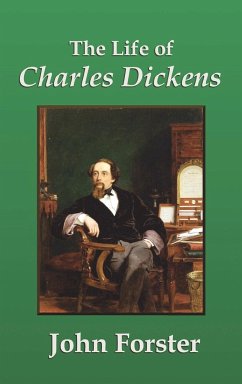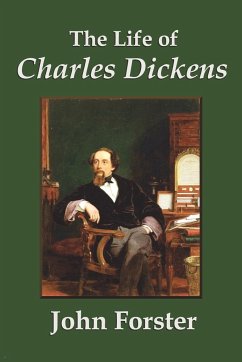John Forster was a close friend of Charles Dickens and godfather to one of his daughters. On Dickens' death Forster devoted himself to writing his biography, producing the first of three volumes after two years. He had previous experience of writing biographies and extensive access to much of Dickens' circle of family and friends, and his correspondence; thus he was ideally placed to thoroughly describe the great author's life. Most of the chapters deal with a specific period of Dickens' life, including his childhood, education, early career, writings, extensive travel, family life and public readings. This new edition from Benediction Classics has brought together three volumes into one, unifying the structure and providing a new index, but retaining all the black and white illustrations and footnotes of the original.
Hinweis: Dieser Artikel kann nur an eine deutsche Lieferadresse ausgeliefert werden.
Hinweis: Dieser Artikel kann nur an eine deutsche Lieferadresse ausgeliefert werden.








